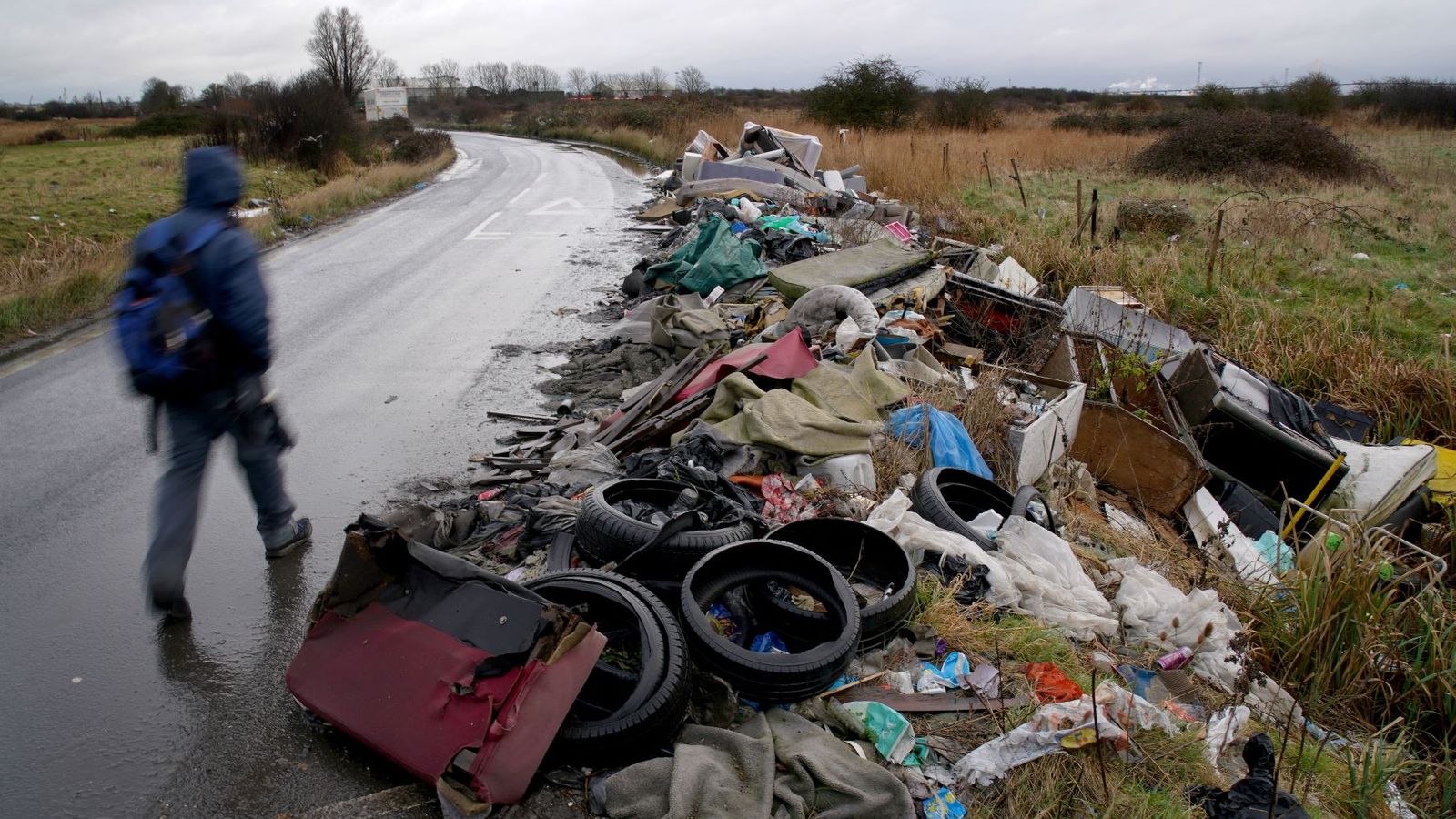Criminals are regarding fines for fly-tipping as “business expenses” making the deterrent ineffective, MPs have said.
Rather than cracking down on waste crime, the government’s approach is closer to “decriminalisation”, the parliamentary Public Accounts Committee (PAC) said.
It said that the Department for Environment, Food and Rural Affairs (Defra) was not doing enough to prevent fly-tipping and does not have a solid plan in place to meet its target of eliminating £1bn a year of waste crime by 2043.
Criminal activities such as fly-tipping, illegal waste sites, export of waste and evasion of landfill tax are on the rise, according to the committee’s report, and the true scale of the issue may be even higher due to unreported and undiscovered sites.
Waste crime prosecutions have fallen 90% from a peak in 2007/2008, the report said, and many smaller crimes receive little to no enforcement action, as the Environment Agency focuses its attention on only the most serious criminals.
The committee warned that: “Defra, if it is serious about eliminating waste crime, has a long way to go from the current position where the approach to large parts of waste crime is closer to decriminalisation.”
The report called for Defra and HM Revenue and Customs to speed up the courts process and strengthen guidelines in order to make the enforcement plan more effective.
Southern Water and Thames Water bosses admit their performance has been ‘unacceptable’ amid anger over sewage spills
Government would make ‘terrible mistake’ by scrapping strict protections for nature, ex-cabinet minister warns
Winter rainfall not enough to prevent spring drought next year, forecasters warn
With 1.1 million incidents of fly-tipping reported in 2020/21 and many more going unreported, Defra was also criticised for its lack of support to tackle the problem.
While landfill tax has encouraged a push towards recycling over recent years, the committee said it has unintentionally increased incentives to commit waste crime, and HMRC has been ineffective in prosecuting those who evade paying the tax.
It is estimated that 400,000 tonnes of waste are being illegally exported each year, costing the economy £42m, and doing extensive damage to the poorer countries where the waste is dumped.
The targets set in place four years ago by the Environment Agency to tackle waste crime are moving at a “slow and piecemeal” pace, with some measures such as the digital tacking of rubbish still in the pilot stages, the report found.
The chairwoman of the PAC, Dame Meg Hillier said: “The result is property and countryside blighted by fly-tipping, toxic leaks into our soil, and tonnes of waste illegally exported by the UK to developing countries even less able to cope with its indefinite negative effects.
“With growing involvement of criminal gangs, adept at evading detection and who regard the fines if they are caught as merely a business expense, a much more serious approach to enforcement is required,” she said.
Environment minister Trudy Harrison said: “We are cracking down on waste crime, which costs the economy in England around £924m per year.”
“That is why we are reforming the licensing system, introducing mandatory digital waste tracking, investing to tackle fly tipping, and supporting people to do the right thing by disposing of their waste correctly.”
Fraud investigation service head of operations at HMRC Richard Las, said: “We are committed to combating waste crime and are updating our plans and increasing compliance resource to achieve this.”
Compliance work in the waste sector had secured £873m in the past four years that would have otherwise gone uncollected and prevented £1.5 billion in incorrect repayment claims since 2017/18, Mr Las said.






















